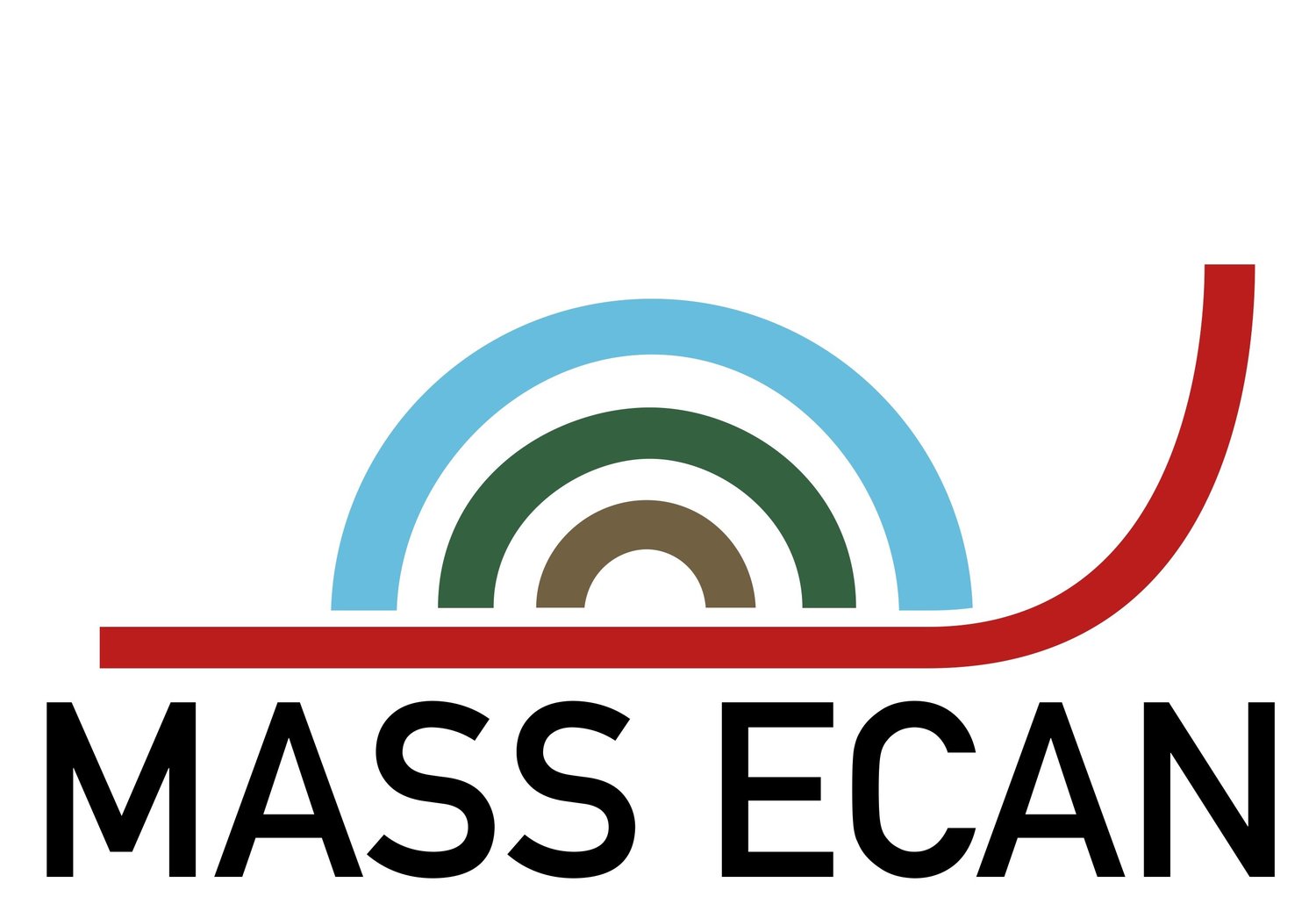Thanks to everyone who supported and participated in our successful second annual conference! We are busily digesting and processing all that we heard, but as a start, here are some of my reflections on and takeaways from the day.
1. Mass ECAN is growing and filling an unmet need in our state.
Mass ECAN is a unique community of practice, even among its peers in other states, because of our geography (statewide) and scope (foundational interest in ecosystem resilience and natural resources conservation across sectors and organizations). Mass ECAN has created a space for climate adaptation practitioners and researchers to advance the conversation about ecosystem resilience and the role of nature based solutions.
Since launching one year ago, Mass ECAN has grown to 235 members. At this year’s conference, we brought together over 100 people, almost half of who were not yet members of our Network. Attendees came from across the state (and neighboring states!) and represented a cross-section of organizations from academia, non-profits, businesses, and state, federal, regional, and local agencies and boards.
2. There are both challenges and benefits to having a statewide network and conference.
Massachusetts is a diverse state where there are real differences in experiences from east to west, urban to rural. There is a lot we can learn from peers working in different contexts! Our conference tries to provide a little taste of everything with an emphasis on topics or initiatives that are important to climate adaptation in our state regardless of focus area, sprinkled with on-the-ground examples and speakers working in specific systems. We will be taking your feedback on what you’d like to see at next year’s conference and working to maintain a balanced agenda. Also, finding a centrally-located venue is always a challenge, so please send ideas! On the whole, our community of practice will need to be dynamic as the field of climate adaptation changes and continue to be responsive to input from members to shape what we do next.
3. There is great work already going on in Massachusetts and even more interest in increasing climate adaptation and resilience
Climate adaptation is an ever-changing target, but we heard from many speakers who have taken the first steps. We don’t have time to reinvent the wheel (climate change is urgent!), so it’s essential to share lessons learned.
We heard that:
· Massachusetts is a leader among states with a couple major initiatives underway: integration of the first-ever State Hazard Mitigation and Climate Adaptation Plan and support for municipal adaptation planning and action through the Municipal Vulnerability Preparedness Program.
· Our affiliated expert work groups are diving deep into specific research and action on thorny adaptation topics that require cross-organizational collaboration.
· While often considered an after-thought, proactive monitoring and evaluation is key to adaptive management and understanding the impacts of our work in a changing climate.
· Regional organizations have a unique role to play in convening and advancing climate adaptation across municipalities and at the watershed-scale.
4. There is a lot we can tackle together
We heard many great ideas for how Mass ECAN can be a resource to members and advance climate adaptation on-the-ground, reflecting how much work there is to be done. Stay tuned for another opportunity to provide feedback and prioritize what we do next as a Network.
You said it best – here are some reflections from the conference evaluations:
· What you found most useful -
o “Connecting my work with others and the bigger picture."
o “Learning about other efforts in different areas of MA that I/my partners can link to as to not recreate the wheel and learn from best practices.”
o “Pairing up regional habitat restoration, water quality/ quantity issues and land use priorities with resiliency can help stretch funds out further and assist municipalities by providing applicable implementation case studies in the event of limited time/ financial resources.”
· What you learned that you can use in your work -
o “I like the framework of resistance/resilience/transition for thinking about a multi-faceted approach to adaptation.”
o “The broad range of climate change risks and solutions from urban-rural communities.”
Thanks and hope to see you at next year’s conference!
